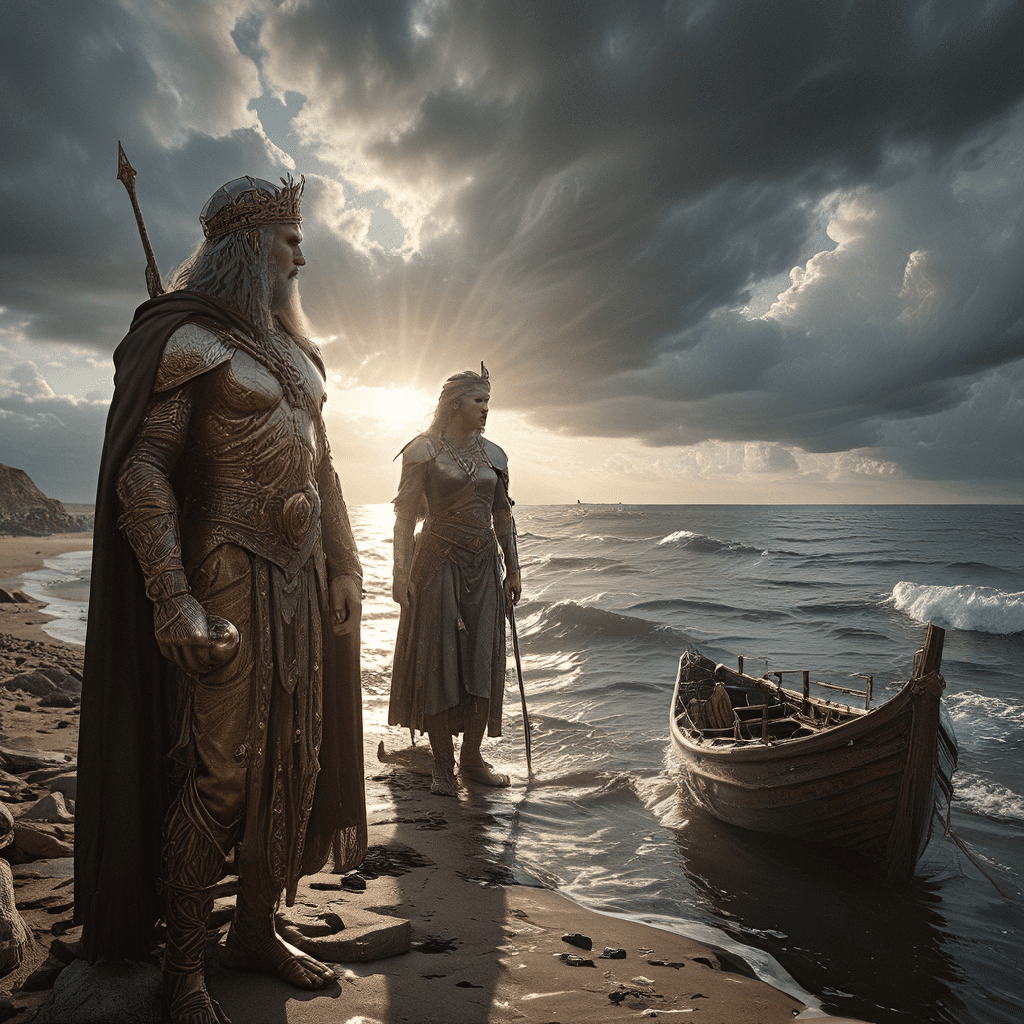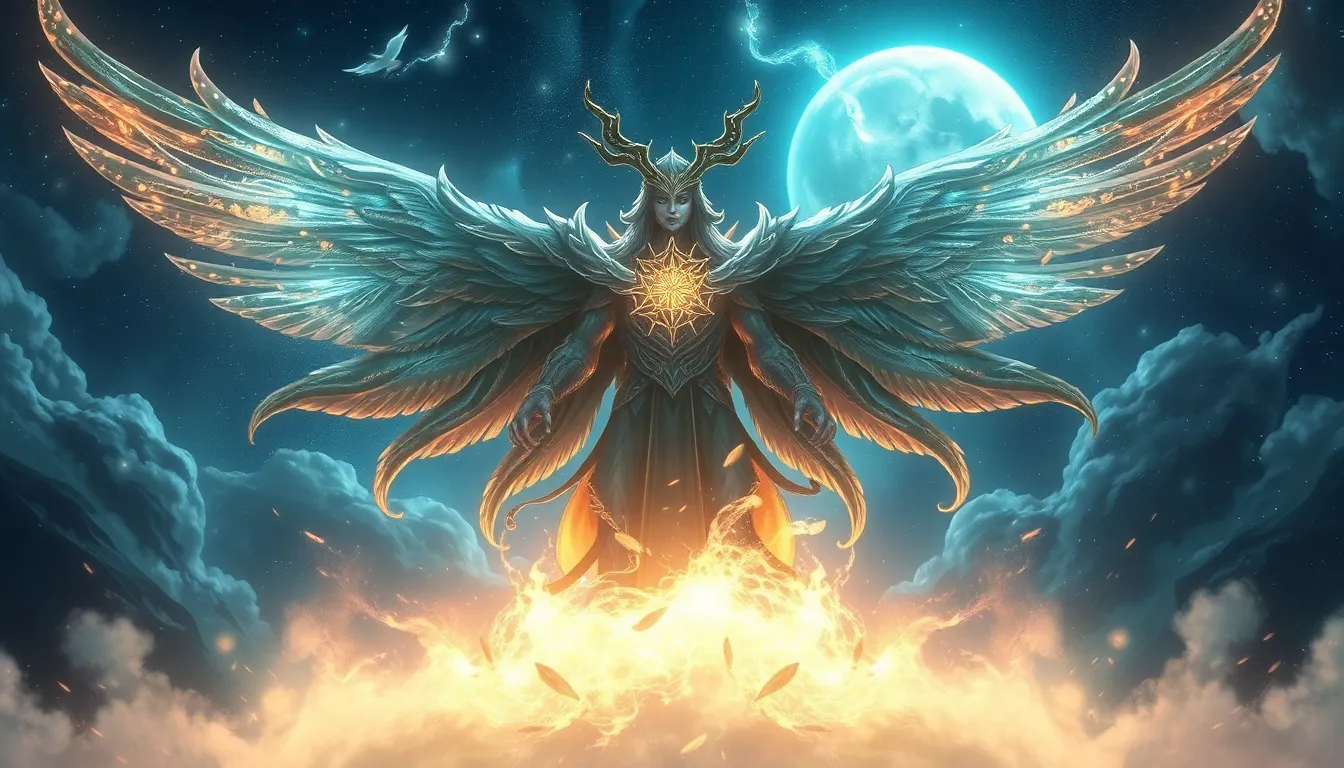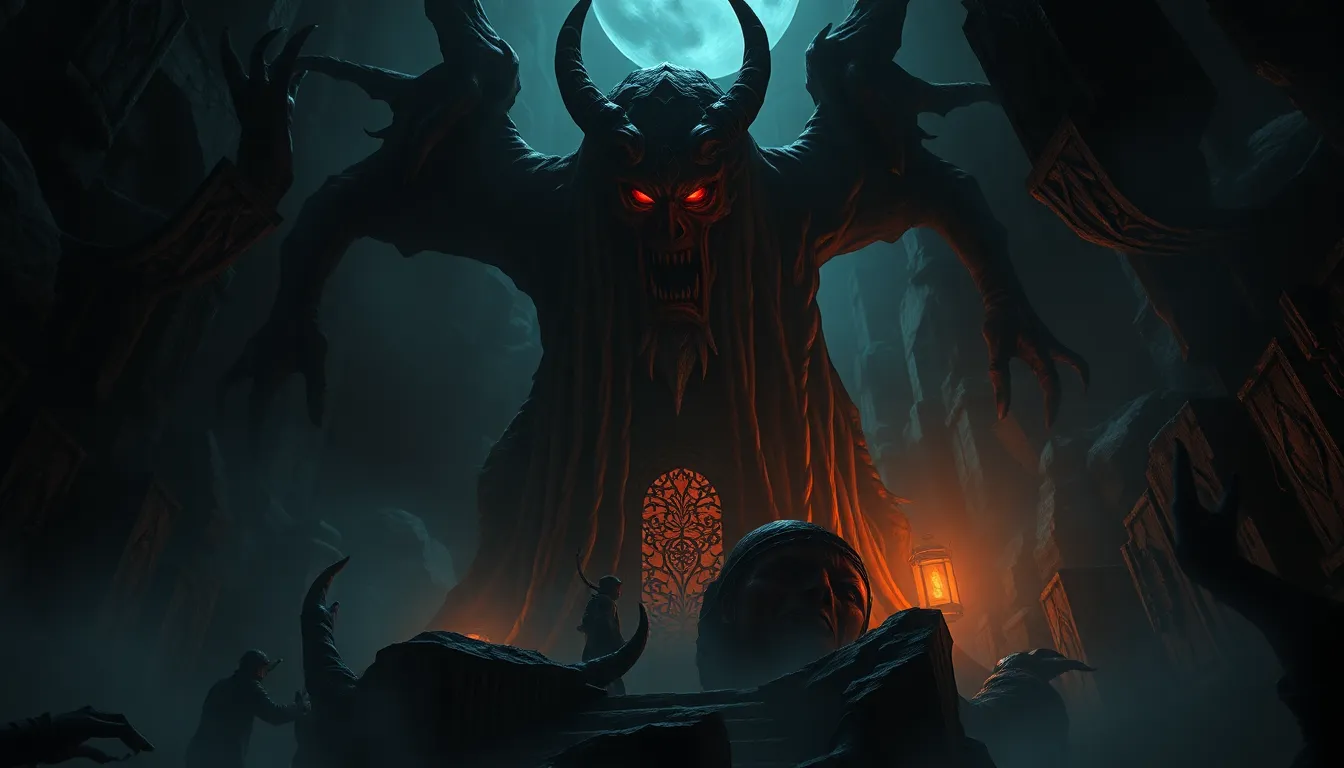Baltic Mythology: An Introduction
Baltic mythology, a rich tapestry of ancient beliefs and stories, offers a captivating glimpse into the spiritual world of the Baltic peoples. Encompassing the cultures of Latvia, Lithuania, and parts of Estonia, this mythology has been passed down through generations, shaping their worldview and understanding of the universe. Unlike many other mythologies, Baltic mythology focuses less on the creation of the world and more on the lives and destinies of humans. This mythology is deeply intertwined with the natural world, drawing inspiration from the forests, rivers, and seas that surround the Baltic region.
The core of Baltic mythology lies in its pantheon of gods and goddesses. Each deity embodies a specific aspect of nature or human life, representing forces like the sun, storm, earth, and harvest. These deities are not considered all-powerful or distant, but rather active participants in the lives of humans, influencing their fortunes and offering guidance.
The Role of Fate and Prophecy in Baltic Mythology
In the intricate tapestry of Baltic mythology, fate and prophecy play a pivotal role, shaping the destinies of individuals and influencing the course of events. The concept of fate is deeply embedded within the Baltic worldview, influencing their understanding of the past, present, and future. Baltic myths often depict a world where the paths of individuals are guided by unseen forces, and where destiny is a powerful and undeniable presence.
Prophecy serves as a key tool for understanding and navigating this world of fate. It offers glimpses into the future, revealing upcoming events and guiding individuals towards their predetermined destinies. Through prophecies, the gods communicate their will, dispensing knowledge and shaping the course of human affairs.
The Concept of Laima: The Weaver of Fate
Central to the Baltic concept of fate is Laima, a powerful goddess who embodies the very essence of destiny. Laima, often depicted as a weaver, spins the threads of life, determining the duration, happiness, and path of each individual. She is present at the birth of every child, assigning them their unique fate.
Laima's role extends beyond simply assigning fate; she actively shapes and influences the unfolding of destiny. She can intervene in the lives of individuals, altering the course of events and bringing about both joy and sorrow. However, Laima is not a capricious deity. Her actions are guided by a sense of cosmic balance and justice, ensuring that the threads of fate are woven with purpose and meaning.
Prophecies and Oracles: Sources of Foreknowledge
In Baltic mythology, prophecies and oracles serve as vital sources of foreknowledge, offering insights into the future and revealing the workings of fate. These prophecies can be delivered through various means, including dreams, visions, and the voices of spirits.
Certain individuals are believed to possess the gift of prophecy, allowing them to interpret the signs of the future and guide others. These prophets are often revered and sought after for their wisdom and ability to unlock the secrets of destiny. Oracles, sacred places where the gods are believed to communicate through signs and omens, also play a significant role in seeking prophetic knowledge.
The Significance of Dreams in Baltic Mythology
Dreams hold a prominent place in Baltic mythology, serving as a bridge between the waking world and the realm of the divine. In dreams, individuals can receive guidance from the gods, warnings about impending events, and even glimpses into their own destiny. Prophecies often manifest through dreams, offering insights into the future that shape the decisions and actions of individuals.
Dreams are not simply passive experiences, but rather active encounters with the spiritual world. They require interpretation, allowing individuals to decipher the messages embedded within their subconscious. The ability to discern the meaning of dreams is highly valued, as it offers access to valuable knowledge and a deeper understanding of fate.
The Impact of Fate and Prophecy on Heroic Tales
Baltic heroic tales, filled with bravery, adventure, and supernatural encounters, are profoundly shaped by the concepts of fate and prophecy. These stories often revolve around individuals who are destined for greatness, their paths predetermined by the gods and woven into the tapestry of fate.
Heroes, such as the legendary Latvian hunter Lāčplēsis, are often guided by prophecies, receiving warnings or clues about their destined mission. These prophecies serve as a compass, directing them towards their heroic purpose. The heroes may also encounter mystical beings, oracles, or dream visions that reveal their destiny and empower them to fulfill their role. For example, the Lithuanian hero Vytis is said to have received a vision of a white horse, a symbol of strength and leadership, which inspired him to become a great warrior.
Even when faced with seemingly insurmountable obstacles, the heroes in Baltic mythology are often driven by their understanding that their fate is inevitable. They bravely face challenges and overcome adversity, knowing that their destiny is written in the stars. These tales highlight the power of fate, even when individuals believe they have free will, and demonstrate the importance of accepting and embracing one's predetermined path.
The Role of Destiny in the Creation Myths
Baltic creation myths, while less prominent compared to other mythologies, also incorporate the notion of fate and destiny. These myths often portray the world as a pre-determined entity, shaped by the will of the gods and guided by the threads of fate.
For example, in Lithuanian mythology, the world is said to have emerged from a cosmic egg, symbolizing the interconnectedness of all things. The creation of humans is often attributed to the will of the gods, who shaped them according to their own divine plan. This suggests that even the origins of humanity were guided by a predetermined course, woven into the fabric of fate.
The Relationship Between Fate and Free Will in Baltic Beliefs
While fate plays a significant role in Baltic mythology, the concept of free will is also present. Individuals are not simply puppets of destiny; they possess the ability to make choices and influence the course of their lives. However, the concept of free will is often intertwined with the concept of fate, suggesting a delicate balance between the two.
Individuals may strive to defy their destiny, but their efforts are often met with obstacles or divine interventions. This highlights the powerful influence of fate and the limitations that it places on free will. However, individuals may also choose to embrace their destiny, finding fulfillment and purpose in their predetermined path. This emphasizes the importance of aligning one's actions with the will of fate and finding meaning in the grand tapestry of destiny.
The Influence of Baltic Mythology on Later Folklore and Literature
The concepts of fate and prophecy, deeply ingrained in Baltic mythology, have had a lasting influence on later folklore, literature, and cultural traditions. These themes have been woven into countless stories, poems, songs, and folk tales, shaping the collective imagination of the Baltic people.
The stories of legendary heroes, guided by prophecies and fulfilling their destined roles, continue to inspire and resonate with audiences. The symbolism of Laima, the weaver of fate, serves as a reminder of the interconnectedness of all things and the powerful influence of destiny. The exploration of the relationship between fate and free will continues to spark debate and reflection among those who encounter Baltic mythology.
Comparing Baltic Mythology to Other Mythological Systems
When comparing Baltic mythology to other systems, it's fascinating to see how fate and prophecy are approached differently. While some cultures, like the Greek, focus on fates as unchangeable decrees of the gods, the Baltic perspective suggests a more nuanced relationship between destiny and individual agency.
In Norse mythology, the fate of individuals is determined by the Norns, three goddesses who weave the threads of destiny. While somewhat similar to Laima, the Norns are often seen as more rigid and less open to intervention. This highlights the unique aspects of Baltic mythology, where fate is not a rigid force but rather a tapestry of possibilities that can be influenced by individual choices and actions.
Baltic mythology, with its emphasis on the interconnection of fate, prophecy, and human agency, offers a rich and complex perspective on the human condition. It highlights the importance of understanding one's place within the grand scheme of things and finding meaning in the tapestry of destiny. By exploring these themes, Baltic mythology provides a valuable lens through which to understand the human experience, both past and present.
FAQ
Q: What are some examples of Baltic myths that involve fate and prophecy?
A: The story of Lāčplēsis, the Latvian hero who slays a bear-like monster to save his people, is guided by prophecy. The legend of King Mindaugas, the first Lithuanian king, involves a prophecy predicting his rise to power.
Q: How did Baltic beliefs about fate influence their daily lives?
A: The Baltics were deeply aware of fate's influence on their lives. They sought guidance from oracles and dream interpreters, held rituals to appease the gods, and made offerings to Laima for a good fate.
Q: Is it possible to change one's fate in Baltic mythology?
**A: ** While fate is powerful, Baltics believed that individuals could influence their destiny through their actions. By living a virtuous life, fulfilling one's duty, and seeking guidance from the gods, they could shape a more favorable path for themselves.


